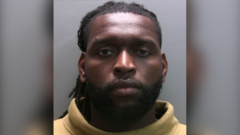In a significant legal twist, the Illinois Supreme Court has decided to overturn the conviction of actor Jussie Smollett, who has been accused of orchestrating a hate crime against himself in Chicago back in 2019. The court's ruling came after Smollett was convicted on five counts of disorderly conduct in 2021, stemming from allegations that he faked a race-and-identity-motivated attack.
Illinois Supreme Court Reverses Jussie Smollett's Conviction in 2019 Hate Crime Case

Illinois Supreme Court Reverses Jussie Smollett's Conviction in 2019 Hate Crime Case
The Illinois Supreme Court's ruling sparks debate over justice and accountability as Jussie Smollett's conviction for a staged attack is dismissed.
Smollett, who identifies as black and gay, has consistently maintained that he was indeed assaulted, detailing an incident where he claimed two men verbally assaulted him, used racial slurs, and placed a noose around his neck in a racially charged attack. However, during the court proceedings, two brothers testified that Smollett enlisted them for a staged attack, alleging he paid them $3,500 for their participation.
Initially sentenced to 150 days in prison, Smollett only served six days before being released while his case was under appeal. The Illinois Supreme Court ultimately sided with Smollett's defense team, asserting that the actor should not have faced charges from a special prosecutor after those charges were originally dropped by the Cook County State Attorney's Office in exchange for community service. This decision stirred controversy, prompting criticism from officials like former Chicago Mayor Rahm Emanuel, who argued that Smollett escaped justice without facing the consequences of his actions.
In its written opinion, the Supreme Court acknowledged the public's vested interest in the case, emphasizing that it is crucial to honor legal agreements that individuals rely on. Prosecutors previously alleged that Smollett's motivations for the staged incident stemmed from dissatisfaction with a television studio's handling of hate mail directed at him. Smollett's insistence on being a genuine victim contrasts sharply with the testimony of the two brothers, who detailed their financial arrangements with him.
As this legal saga concludes, many remain divided on the implications of the court's decision and the pervading questions about accountability and ethics surrounding high-profile cases.
Initially sentenced to 150 days in prison, Smollett only served six days before being released while his case was under appeal. The Illinois Supreme Court ultimately sided with Smollett's defense team, asserting that the actor should not have faced charges from a special prosecutor after those charges were originally dropped by the Cook County State Attorney's Office in exchange for community service. This decision stirred controversy, prompting criticism from officials like former Chicago Mayor Rahm Emanuel, who argued that Smollett escaped justice without facing the consequences of his actions.
In its written opinion, the Supreme Court acknowledged the public's vested interest in the case, emphasizing that it is crucial to honor legal agreements that individuals rely on. Prosecutors previously alleged that Smollett's motivations for the staged incident stemmed from dissatisfaction with a television studio's handling of hate mail directed at him. Smollett's insistence on being a genuine victim contrasts sharply with the testimony of the two brothers, who detailed their financial arrangements with him.
As this legal saga concludes, many remain divided on the implications of the court's decision and the pervading questions about accountability and ethics surrounding high-profile cases.




















